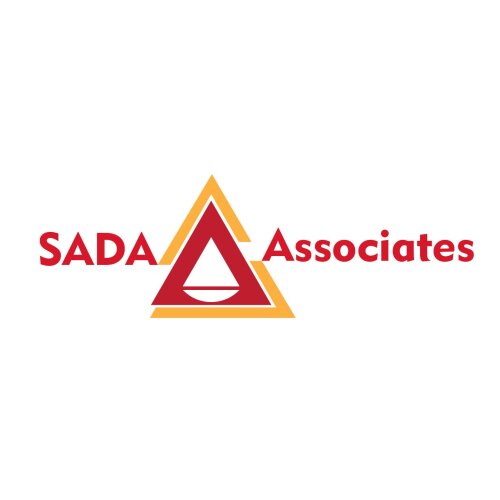Best Business Lawyers in Nepal
Share your needs with us, get contacted by law firms.
Free. Takes 2 min.
Or refine your search by selecting a city:
List of the best lawyers in Nepal
About Business Law in Nepal
Business law in Nepal is grounded in a combination of statutory law and traditional practices, contributing to a robust environment for local and international trade. Nepal has witnessed considerable economic development, with the government promoting an open economy to attract foreign investment and encourage entrepreneurship. Business operations in Nepal are primarily regulated by several legislative frameworks such as the Companies Act, Foreign Investment and Technology Transfer Act, and the Industrial Enterprise Act. Key sectors include agriculture, tourism, eco-friendly energy, and traditional industries. Understanding these legal frameworks is crucial for any business intending to operate in the Nepalese market.
Why You May Need a Lawyer
Legal help becomes essential in various scenarios when conducting business in Nepal:
- Starting a Business: Legal assistance is crucial for understanding the regulatory requirements for company registration, licensing, and compliance with government policies.
- Contract Drafting and Negotiations: A lawyer can help draft, review, and negotiate contracts to safeguard your interests and ensure enforceability.
- Joint Ventures and Partnerships: Legal guidance is needed to establish partnerships or collaborate with local firms under the correct legal provisions.
- Intellectual Property Protection: Lawyers aid in securing patents, trademarks, and copyrights, which are vital for protecting business innovations and brands.
- Dispute Resolution: In cases of disputes involving contracts, employment, or any other legal matters, a lawyer's expertise is crucial for mediation or litigation.
- Mergers and Acquisitions: Legal advice ensures due diligence and compliance with financial, tax, and regulatory obligations during business expansions.
Local Laws Overview
Nepal's business environment is shaped by several critical laws:
- Companies Act, 2006: Regulates the incorporation, responsibilities, and dissolution of companies, ensuring transparent corporate governance.
- Foreign Investment and Technology Transfer Act, 2019: Provides guidelines for foreign companies investing in Nepal, including areas open for investment and repatriation of profits.
- Industrial Enterprise Act, 2020: Aims to promote industrial growth by offering incentives and simplifying procedural requirements for industrial operations.
- Labor Act, 2017: Governs employment relationships, worker rights, and labor dispute resolutions, ensuring fair labor practices.
- Contract Act, 2000: Sets the legal framework for the formation, execution, and enforcement of contracts.
Frequently Asked Questions
What type of business structures can be established in Nepal?
In Nepal, common business structures include sole proprietorship, partnership, private limited company, and public limited company. Foreign investors can also set up joint venture companies.
What are the steps for registering a company in Nepal?
Company registration involves selecting a suitable business structure, reserving a company name, preparing necessary documents, obtaining approval from the Office of Company Registrar, and acquiring a Taxpayer Identification Number (TIN).
Are there any restrictions on foreign investment in Nepal?
Yes, certain sectors are restricted or require government approval for foreign investment, including defense, real estate, and traditional herbs. The Foreign Investment and Technology Transfer Act offers more details.
What are the tax obligations for businesses in Nepal?
Businesses must comply with Value Added Tax (VAT), income tax, and customs duties. Tax rates and obligations vary depending on the business size, type, and industry.
How do labor laws affect businesses in Nepal?
The Labor Act outlines employment terms, working hours, leave entitlements, minimum wages, and dispute resolution mechanisms that businesses must adhere to for fair labor practices.
What legal protections exist for intellectual property in Nepal?
Intellectual property protection is governed by trademark, patent, and copyright laws. Registration with the Department of Industry provides basic enforcement rights.
How can businesses handle disputes in Nepal?
Disputes can be resolved through negotiation, mediation, or litigation in courts. Arbitration is also available for commercial disputes as per the Arbitration Act.
Is it possible to repatriate profits from Nepal?
Yes, foreign investors can repatriate profits through formal banking channels, subject to compliance with tax laws and regulations under the Foreign Investment guidelines.
What are the requirements for closing a business in Nepal?
Closing a business involves settling debts, notifying the Office of the Company Registrar, deregistering for taxes, and following liquidation procedures if necessary.
Can foreign investors own 100% of a business in Nepal?
Foreign investors can own 100% of a business in certain industries, while others require local partnerships. The Foreign Investment and Technology Transfer Act provides further guidance.
Additional Resources
For further assistance, you may consult the following resources:
- Office of the Company Registrar: Provides guidelines for business registration and compliance.
- Department of Industry: Offers information on industrial policy, patent and intellectual property registration.
- Nepal Investment Board: Facilitates foreign and domestic investments and provides necessary clearances.
- Federation of Nepalese Chambers of Commerce and Industry (FNCCI): Represents private sector enterprises and provides networking opportunities.
- Relevant Legal Firms: Engaging a local lawyer experienced in business law can greatly assist with navigating the complexities of the legal environment.
Next Steps
If you need legal assistance in the field of business in Nepal, here are some recommended steps:
- Identify your specific legal needs: Clearly define the areas where you need help, such as company formation, contract issues, or litigation.
- Research local legal professionals: Look for experienced business lawyers or law firms that specialize in your area of interest.
- Arrange consultations: Meet with potential lawyers to discuss your needs, obtain advice, and evaluate their ability to represent you effectively.
- Review and retain services: Once you have chosen a lawyer, review their proposal, terms of service, and fees before formally engaging their services.
- Stay informed: Keep up with any updates in business laws that may affect your operations by maintaining regular communication with your legal advisor.
Lawzana helps you find the best lawyers and law firms in Nepal through a curated and pre-screened list of qualified legal professionals. Our platform offers rankings and detailed profiles of attorneys and law firms, allowing you to compare based on practice areas, including Business, experience, and client feedback.
Each profile includes a description of the firm's areas of practice, client reviews, team members and partners, year of establishment, spoken languages, office locations, contact information, social media presence, and any published articles or resources. Most firms on our platform speak English and are experienced in both local and international legal matters.
Get a quote from top-rated law firms in Nepal — quickly, securely, and without unnecessary hassle.
Disclaimer:
The information provided on this page is for general informational purposes only and does not constitute legal advice. While we strive to ensure the accuracy and relevance of the content, legal information may change over time, and interpretations of the law can vary. You should always consult with a qualified legal professional for advice specific to your situation.
We disclaim all liability for actions taken or not taken based on the content of this page. If you believe any information is incorrect or outdated, please contact us, and we will review and update it where appropriate.
Browse business law firms by service in Nepal
Nepal Attorneys in related practice areas.
Browse business law firms by city in Nepal
Refine your search by selecting a city.

















